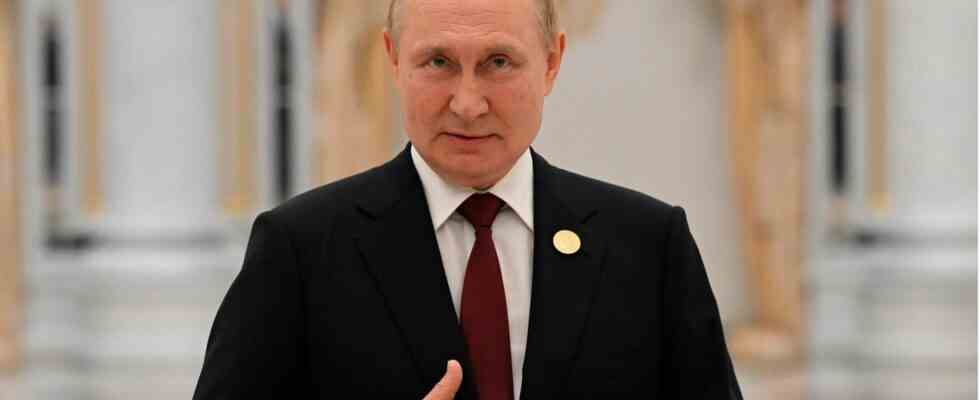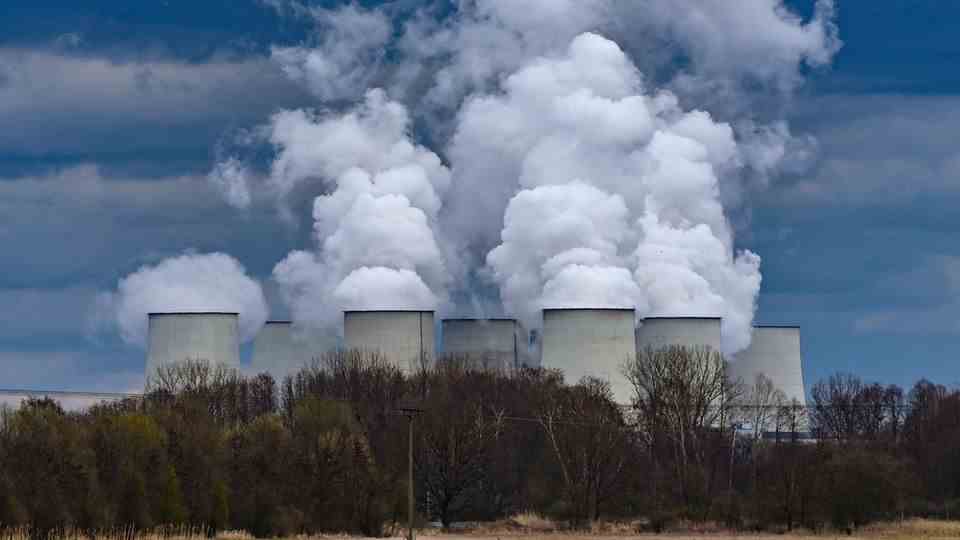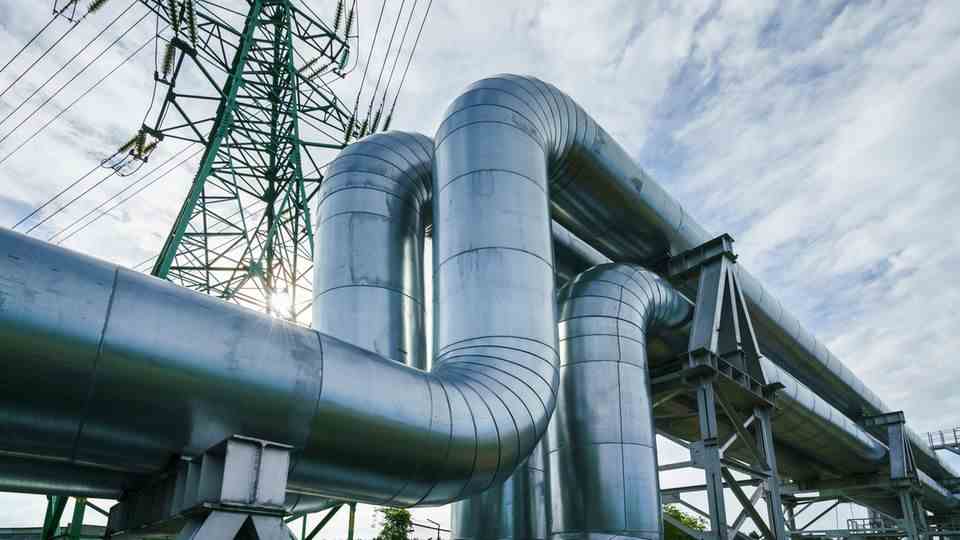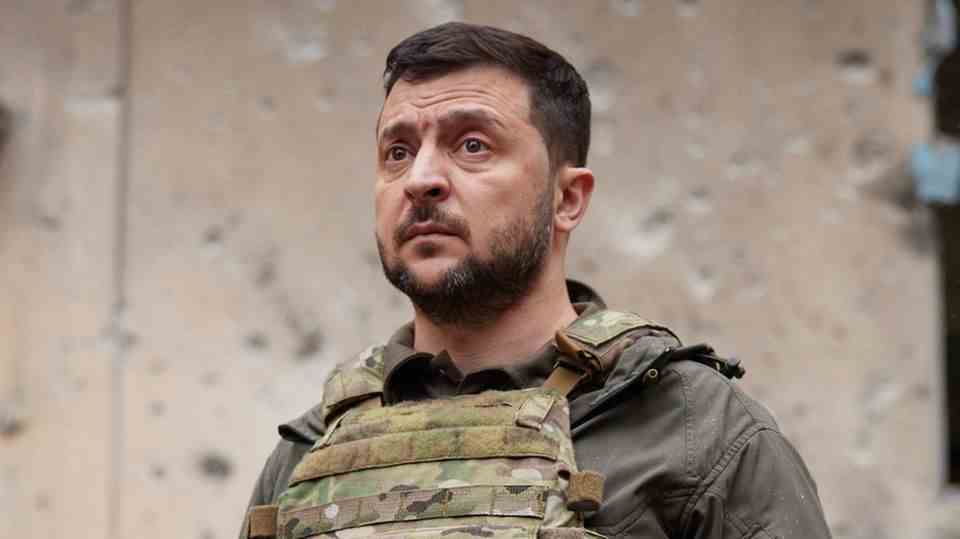Russian President Vladimir Putin counts stirring up concerns among his arsenal of weapons. Now his play with uncertainty is beginning to take effect – and leaves a nervous republic in his wake.
New pictures are added every day. of destruction. Escape. Fierce fighting. Russia’s war of aggression against Ukraine enters its 138th day. The Russian armed forces are now apparently laying one “operational break” but that should only be the calm before the next storm. The death never ends.
Nevertheless, these days a Federal Republic can be observed that has other immediate concerns than the war in Ukraine.
Swimming pools are making headlines that, given rising energy costs, Stop heating or closing the water. municipalities set up warm rooms, so that low-income people, for example, do not have to freeze at home. landlord reduce the heating outputostensibly to protect tenants from rising costs.
Germany gets chills in the summer: What if the Russian gas deliveries fail? The question has become more urgent, and in many places preparations are being made for emergencies. No Russian natural gas has flowed through the Nord Stream 1 pipeline since Monday morning due to routine maintenance work. However, it is uncertain whether the important raw material will shoot through the pipes again as planned (Read more about this here).
The reasons for this have long been obvious. Russia’s President Vladimir Putin counts stirring up fears in his arsenal of weapons, trying to arouse desires (whether at groceries or energy) and threatening gestures (before nuclear war) to undermine the determination of the countries that are supporting Ukraine in the fight against Russia and to shift their priorities. What is new, however, is that Putin’s plan is beginning to take effect.
Aid to Ukraine is important, but…
He saw the problems coming early: Robert Habeck warned at the beginning of March, twelve days after the start of the Russian campaign, of considerable macroeconomic damage and social upheaval should Russian energy supplies fail completely in the short term. Don’t talk about “individual comfort restrictions”, said the Federal Minister of Economics at the time, but about damage to the economy as a whole and to society as a whole “of the most severe magnitude”. These could jeopardize the enforcement of all possible sanctions.
Now, four months later, the possible gas stop has actually arrived in the catalog of concerns of the Germans. And apparently has resulted in a rethink in the minds of the republic.
What are the most important issues that the federal government now has to tackle? That was a question from the opinion research institute Insa on behalf of the “Picture on Sunday”. Accordingly, the most pressing problems: fighting inflation (65 percent) and limiting the rise in energy prices (60 percent). Military support for Ukraine (19 percent) takes a back seat, and combating the corona pandemic (33 percent) and climate change (43 percent) are also more important to those surveyed, according to the survey.
The impression: Solidarity with Ukraine is being pushed aside by personal financial worries. How expensive would a possible gas stop be? There are no really reliable answers, but there are all kinds of forecasts. In any case, it will probably be expensive.
“Even if we don’t get into a gas emergency, gas will remain expensive,” said Federal Network Agency boss Klaus Müller “Focus”. The consequences of the current gas shortage have not yet reached consumers in terms of price. “That can quickly mean an additional burden of 2,000 to 3,000 euros a year for a family,” says Müller. “The next vacation trip or the new washing machine is often no longer there.” Germany is threatened with “gas poverty”.
Bavaria’s Prime Minister Markus Söder (CSU) chose significantly more robust words. He is worried “that many normal earners are threatened with relegation”, he said on Sunday in the ARD “summer interview”, and the economy will have a “real stroke from which we are hardly recovering”. And he also rhetorically focused on domestic concerns: Help for the people in Ukraine is important, he said, “but of course we have to take care of our population, the people in Germany, and we can’t allow Germany to end up falling into a downward spiral and end up impoverishing millions of people.”
“Honestly, no one knows”
The federal government does not want to let it get that far. According to Federal Foreign Minister Annalena Baerbock, everything will be done to ensure that a further shortage of Russian gas supplies does not lead to a division in society. “If we have less energy, if we have less heat supply, then we will ensure that things are fair,” she assured on Monday. She criticized Russia for being unpredictable, not only in the war against Ukraine, but also with a view to complying with rules that apply, for example, to energy supplies. “That’s why all the different scenarios are being prepared.”
Particular attention is currently being paid to a gas turbine that is to pump gas through Nord Stream 1 from Russia to Germany. The fact that noticeably less gas flowed through the pipeline in June was also justified by Russia with the turbine that could not be delivered from Montreal after its maintenance due to the sanctions imposed on Russia. Federal Economics Minister Habeck recently spoke of one in view of the throttled gas supplies “Turbine excuse” of Russiaalso Chancellor Olaf Scholz suspected political motives behind.
It will soon become clear whether this is actually an excuse: After weeks of pressure from the federal government, Canada has now approved the export of the repaired turbine. The Canadian government said on Saturday that it was granting “a temporary and revocable permit” to bring the turbine to Germany.
That made sure Relief from the federal government, however, for displeasure in Kyiv. Ukraine was “deeply disappointed” by the decision to grant an exemption from sanctions imposed on Russia in this case, it said in a statement released on Sunday. Even without the turbine, Russia would be able to supply gas in full.
The impression, evident in Ukraine as well, is that solidarity with the country under attack is being pushed aside by personal concerns.
Jonathan Wilkinson, Canada’s Minister for Natural Resources, explained the rethinking in drastic terms. “Without the necessary supply of natural gas, the German economy will have great difficulties,” he said. In addition, the Germans themselves would run the risk “of not being able to heat their houses in the coming winter.” He also accused Putin of “wanting to sow division” among Ukraine’s allies over the energy issue.
Putin’s attempts at division are a factor that needs to be taken seriously, and Federal Economics Minister Habeck shares this impression, and once again called for people to come to terms with the energy crisis. “Europe will not be divided by Russian actions. On the contrary: we are working with even more determination to overcome our dependence on Russian energy sources as quickly as possible,” he said on Monday ahead of a meeting with Czech Industry and Trade Minister Jozef Sikela in Prague.
But uncertainty is gripping an increasingly nervous republic – and the Kremlin warmonger is clearly unwilling to clarify. According to Federal Network Agency boss Müller, there are different signals from Moscow about future gas deliveries through the pipeline.
On the one hand, there are statements by Kremlin spokesmen that, in combination with the promised delivery of the turbine, significantly more gas can be supplied again, he said on Monday in the ZDF “Morgenmagazin”. On the other hand, there were also very martial announcements. “Honestly, no one knows,” said Müller.




